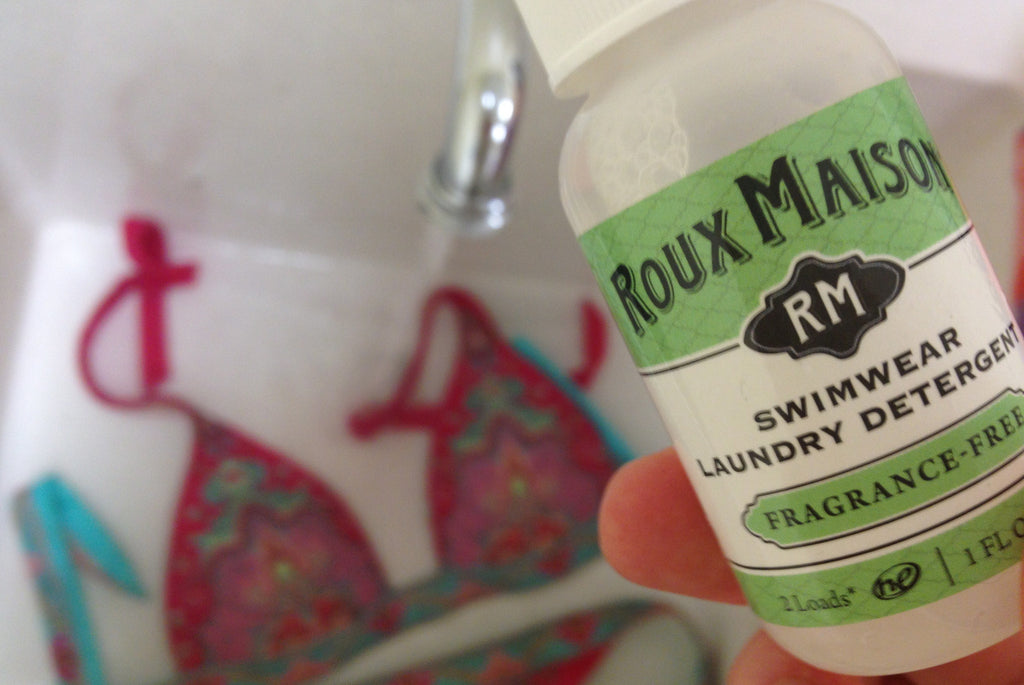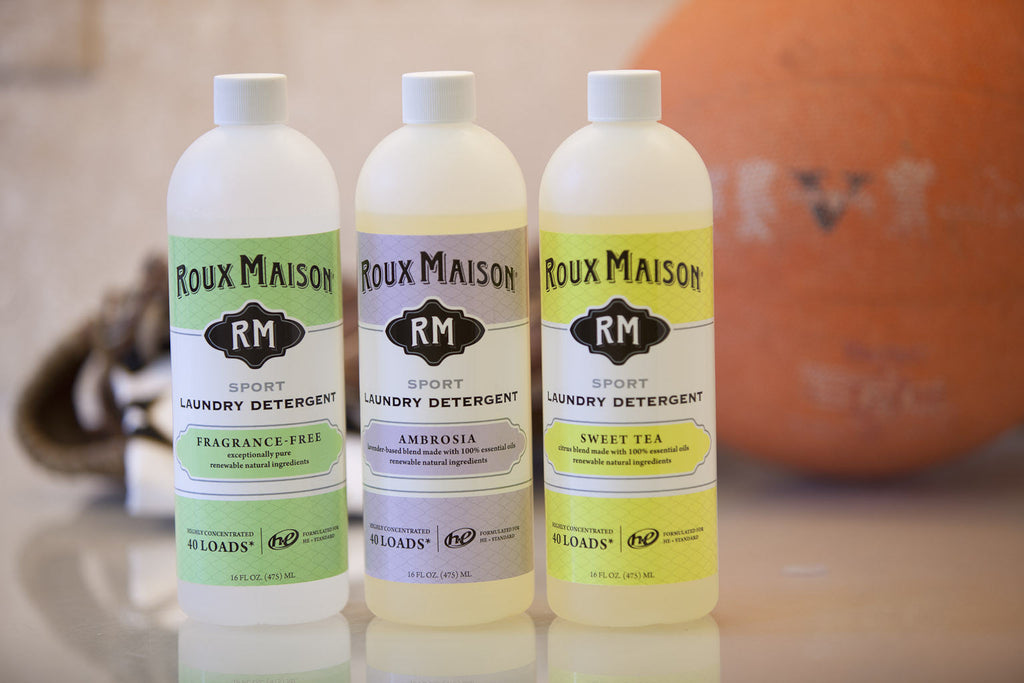Memorial Day has come and gone and it is officially summer! It’s time to face the music and pull out your old swimsuits and/or go buy some new ones. Swimwear is so stressful to purchase and who doesn’t hate trying it on under fluorescent lights in the store? Once you survive that trauma you need to make sure you care for it correctly so it will last as long as possible and you don’t have to relive the shopping anxiety. Swimwear is almost always made of synthetic fabrics and comes in contact with all kinds of harsh conditions including salt, chlorine, self-tanner, sunscreen and deodorant. All of this is complicated when you add a lot of embellishments and trim to the scenario. The most important thing is that you wash your suit every time you wear it and at least try to rinse it as soon as possible after you take it off! This is super important and we can’t overstate it. If you don’t get all of the salt and chemicals out of your suits, they will slowly eat them up and drastically shorten their optimal lifespan, not to mention leaving stains and smells. Yuck!
So, how do you wash your swimwear and what do you do to take the best care possible of all of it? Start by checking for stains. Use Roux Maison Stain Remover and rub it in to any stains like deodorant or sunscreen spots. You can then let your suit sit until you are ready to wash.
We always recommend that you wash by hand and don’t machine wash. Some of you may have really fabulous new washing machines that have the most delicate hand wash cycles on them. If so and if you feel you must machine wash, make sure you do use the most delicate cycle and cold water and also place each suit in a separate lingerie bag to keep anything else from snagging each suit. About a quarter of a 1 ounce bottle is plenty of detergent to use for several suits in the machine or by hand. Just eyeball how much detergent to pour.

To hand wash: This is always our preferred method to wash swimwear. Submerge your suit in the sink in cool to warm water and add just a few drops of Roux Maison Swimwear Detergent per suit and swish it around with your hands. A few drops are all you need because our detergents are all 6x concentrated. It doesn’t seem like much but it really is enough. One bottle should last you at least an entire week at the beach. Let your suits soak for at least 30 minutes or so if you can. Rinse thoroughly with cool water and be careful to avoid wringing or pulling so you don’t cause stretching. Lay flat to dry.
Never, ever place your swimwear in the dryer no matter how you wash it and always lay flat to dry. Don’t wring out your suits whether you hand or machine wash them. This causes stretching and can leave swimwear really pulled and misshapen.
Roll your wet suit in a towel to get most of the moisture out and then just lay it flat to dry. Try to avoid leaving your suits in direct sunlight because this can cause colors to fade.
Roux Maison Swimwear Detergent removes salt, chlorine and sunscreen from swimwear and does not cause stretching or fading. All you have to do is follow these simple instructions and your suits will all stay pristine. It only takes minutes to wash out your suits by hand and to let them air dry flat. They will last so much longer if you do this. All you need are a few drops of Roux Maison Swimwear Detergent per suit and your swimwear will stay in top condition for years to come.
Store your swimwear flat to maintain its shape and make sure your suits are completely dry before putting them away. Avoid storing in plastic bags in case there is any residual moisture so you don’t have any issues with mildew. Plastic bags and swimsuits are not a good combination for any purpose other than packing them for the trip home from the beach. Be sure to take them out of the bag as soon as possible when you get home!

Let us know if you have any great tips to share for swimwear care too. All you need to do now is remember your sunscreen. Happy swimming!
← Older Post Newer Post →








0 comments